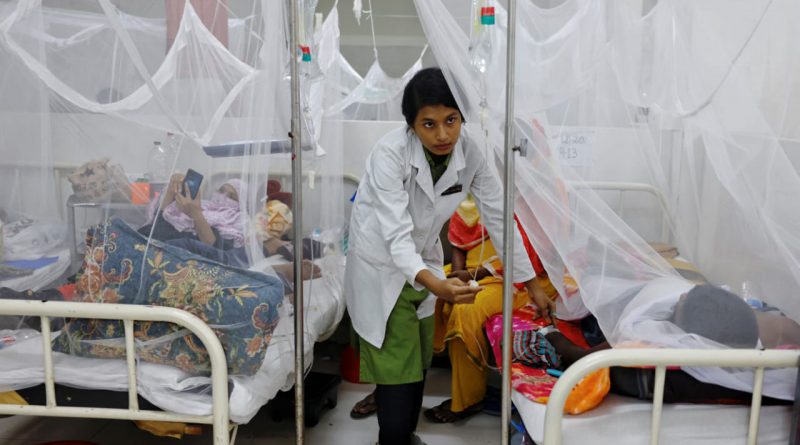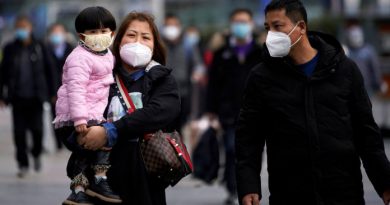Bangladesh fears record high death toll from dengue outbreak
Dhaka (Reuters) – Dengue is spreading rapidly through densely populated Bangladesh this rainy season, raising fears that the mosquito-borne disease could result in a record number of deaths and infections for the second consecutive year.
At least 201 people, more than half of them in the capital Dhaka, have died and more than 37,000 have become infected with the virus so far this year, according to official figures.
In 2022, the virus claimed 281 lives, a record high since the authorities started keeping a tally in 2000, and 62,423 people were infected, the figures showed.
Hospitals, especially in Dhaka, are struggling to find space for the high caseload of patients suffering high fever, joint pain and vomiting, health officials said.
There is no vaccine or drug that specifically treats dengue, which is common in South Asia during the June-to-September monsoon season as the Aedes aegypti mosquito which spreads the disease thrives in stagnant water.
Early detection and access to proper medical care, however, can reduce deaths to fewer than 1% of sufferers.
The government has launched initiatives to limit the spread of mosquito-borne diseases, from awareness campaigns to efforts to kill mosquito larvae following the current spell of rains, Health Minister Zahid Maleque said.
Renowned Bangladeshi physician ABM Abdullah told Reuters that early diagnosis was also key.
“Aedes aegypti mosquito has evolved, and virus now does not cause critical symptoms in many cases,” he said. “Because of this, people often ignore it, but the disease must be diagnosed early so that people can be treated before it gets complicated.”



